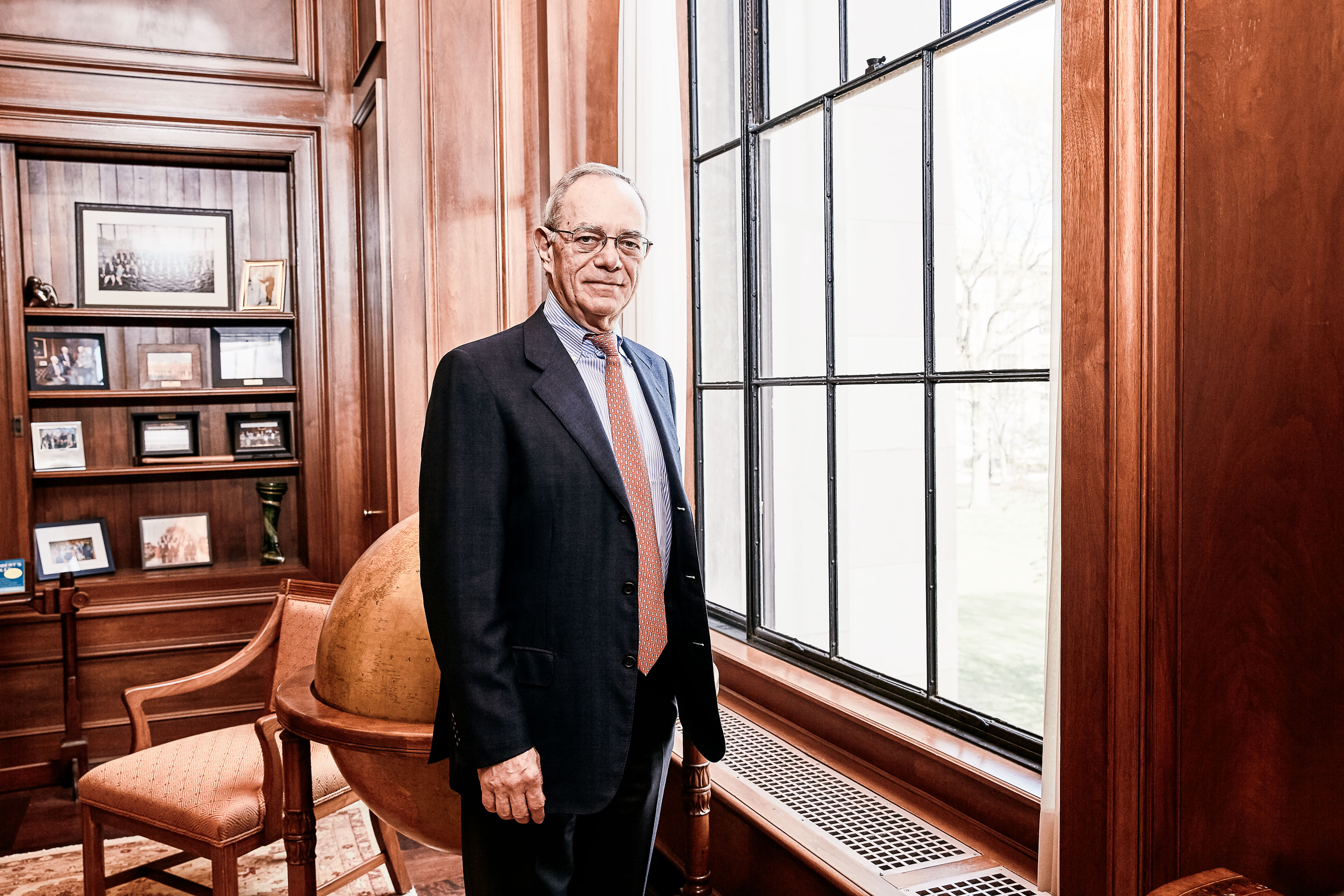Taking action for the common good

In 1979, a federally commissioned study led by meteorology pioneer and MIT professor Jule Charney helped alert the world to the processes driving global warming—at the time, a looming but not yet imminent threat. Today, climate change is no longer a challenge for some distant future; it is a present and accelerating crisis requiring swift, far-reaching action. There is room and reason for every one of us to get involved.
To find out how others at MIT are working on this immensely complex problem and how you can participate too, I urge you to explore the MIT Climate Portal at climate.mit.edu. There you can also find our recent series of six symposia focused on the frontiers of climate science and technology.
To inspire and enable the boldest work of our faculty on this great rolling threat to life on Earth as we know it, in July we announced the MIT Climate Grand Challenges. With this effort, led by Vice President for Research Maria Zuber and Associate Provost Richard Lester, we are seeking and expecting daring initiatives for sharpening our understanding of the impacts of climate change, combating its causes, and adapting constructively to its impacts.
Principal investigators from across the Institute are now developing ambitious multidisciplinary ideas for tackling our climate emergency and designing the most effective levers for swift, large-scale change. We seek to accelerate projects that offer not only solutions but plans for rapid implementation—projects that are transformative, broad in scope, and large in ambition. In other words, the kind of work that brilliant people from around the world come to MIT to do.
I look forward to sharing details about the final selections. Up to five projects will be chosen, and MIT will then focus intensely on securing the funds for the work to succeed.
Responding to the challenges of climate change will require structural transformations, serious technological advances, and significant changes in collective behavior—a tall order. Yet every emergency reveals that “impossible” things are actually doable; in response to covid-19, our society has demonstrated its ability to change more and faster than we ever imagined. There is value in having stretched our thinking about the possibilities of human adaptation, and in having proved that, at our best, we do have the capacity to take action together for the common good.
Keep Reading
Most Popular
Large language models can do jaw-dropping things. But nobody knows exactly why.
And that's a problem. Figuring it out is one of the biggest scientific puzzles of our time and a crucial step towards controlling more powerful future models.
How scientists traced a mysterious covid case back to six toilets
When wastewater surveillance turns into a hunt for a single infected individual, the ethics get tricky.
The problem with plug-in hybrids? Their drivers.
Plug-in hybrids are often sold as a transition to EVs, but new data from Europe shows we’re still underestimating the emissions they produce.
Stay connected
Get the latest updates from
MIT Technology Review
Discover special offers, top stories, upcoming events, and more.